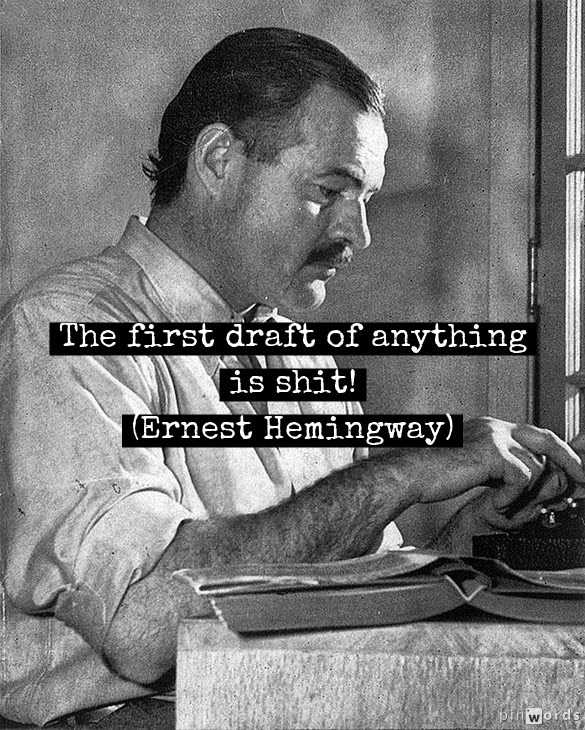
I'm not comparing myself to Hemingway, but, when I write a new piece of software, for me it works the same. I usually write code in a quick-and-dirty way just to make things work. I have to follow my stream of consciousness and put down the basis of the algorithm.
Then, when something starts to work, I begin to make it look better. This means that I change variables like goofy, pluto, etc. with more descriptive and meaningful names. I try to see if I can move some piece of code into a function or if there is a more performing algorithm to be used. In the end, I look at errors, particular situations and memory leaks.
The final result is pretty different from the original code, but it's surely (?) better written, more readable and more performing. Maybe you can argue that I could write directly a better version and limit the modifications to small cosmetic things, so I would have saved time.
My answer is that it's not so easy. For example, managing error codes and particular cases or finding meaningful names for variables and functions is something that takes some time and, if the stream stops, it probably will take longer to accomplish the work.
What about you? Do you ever follow your stream of consciousness? Or do you prefer to immediately take care of all the details?
Image create with Pinwords - Picture of Ernest Hemingway taken from Wikimedia Commons (public domain).

